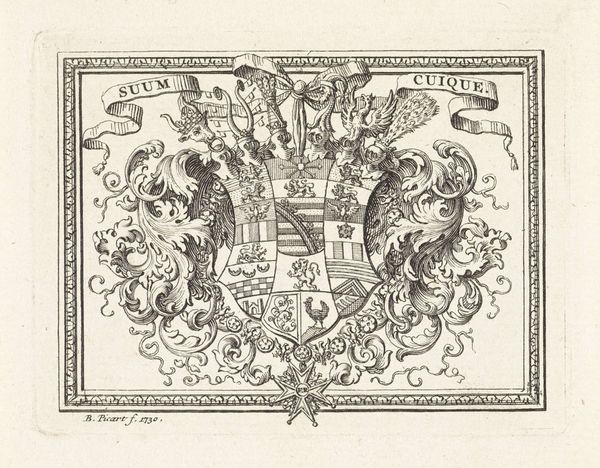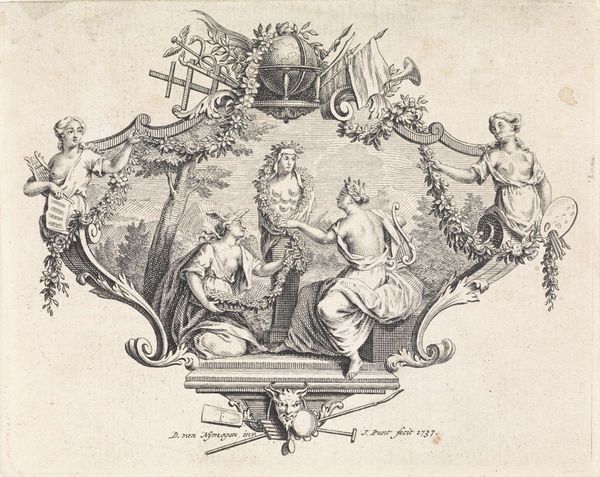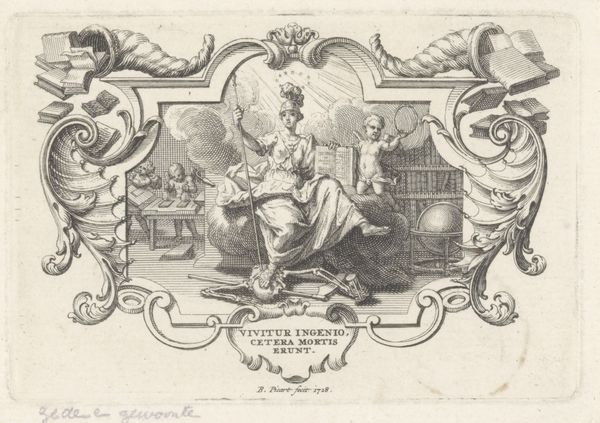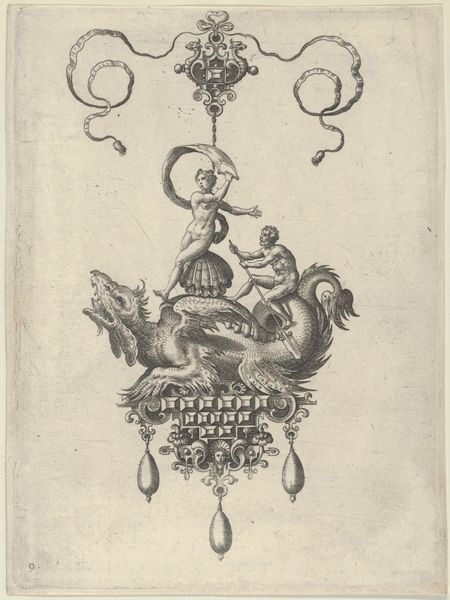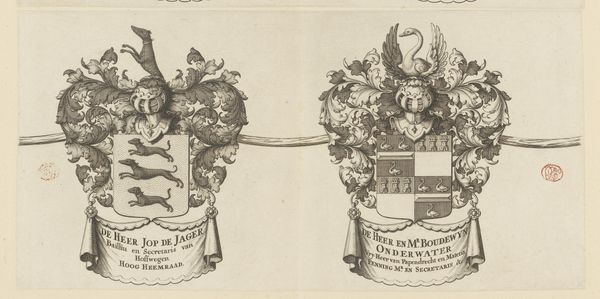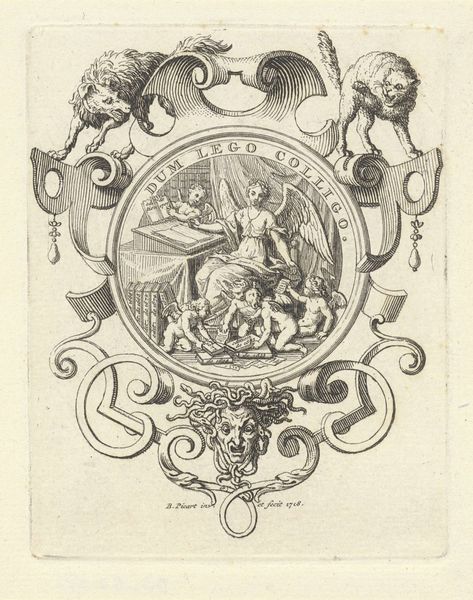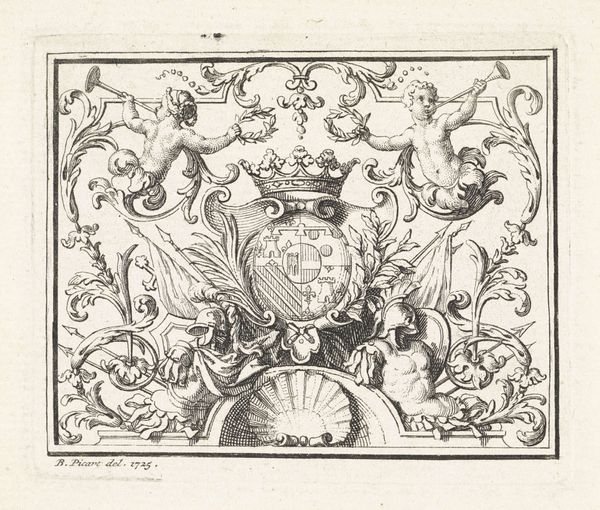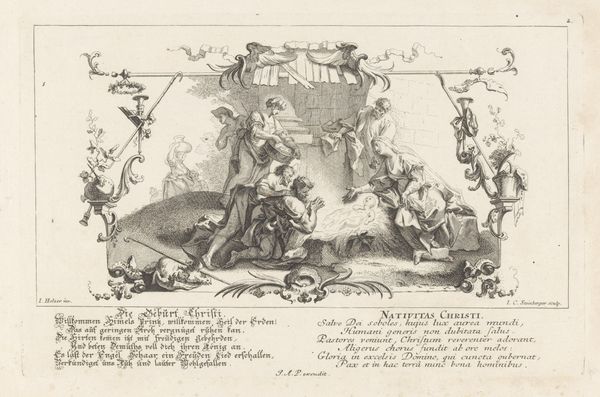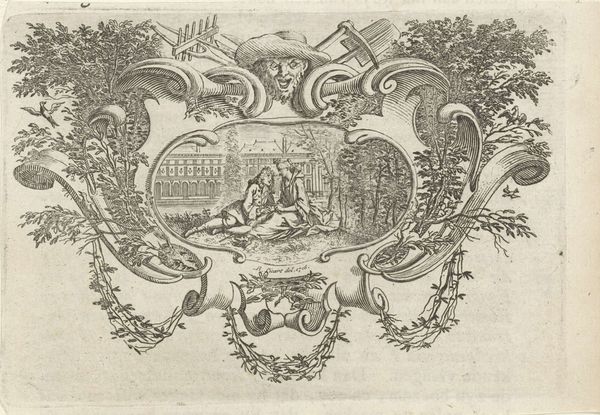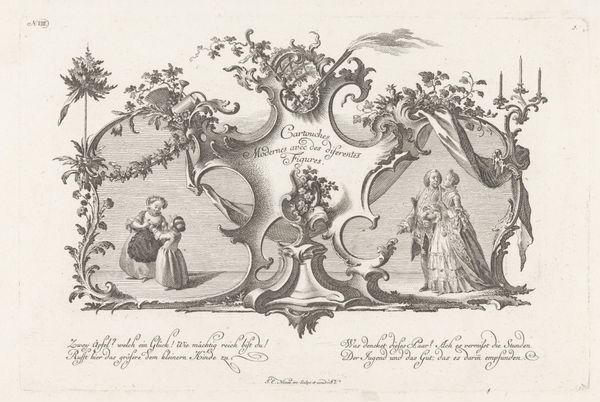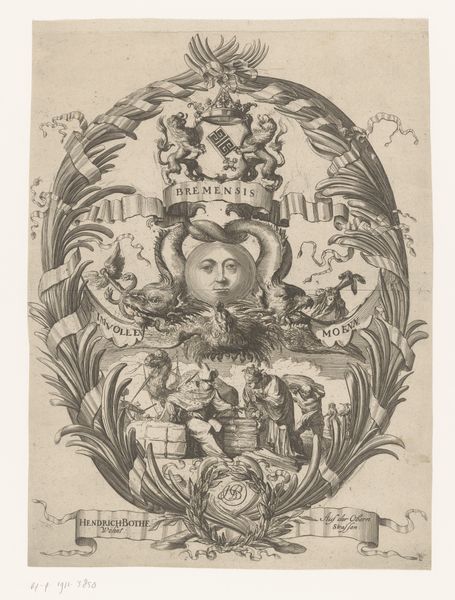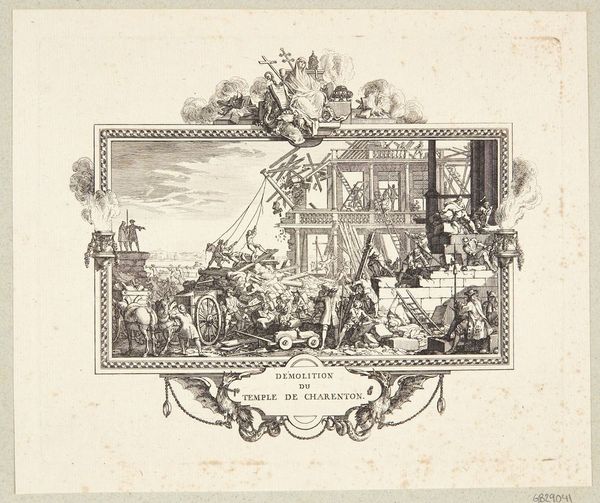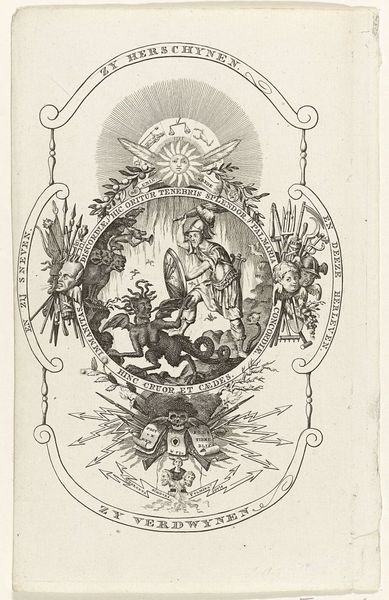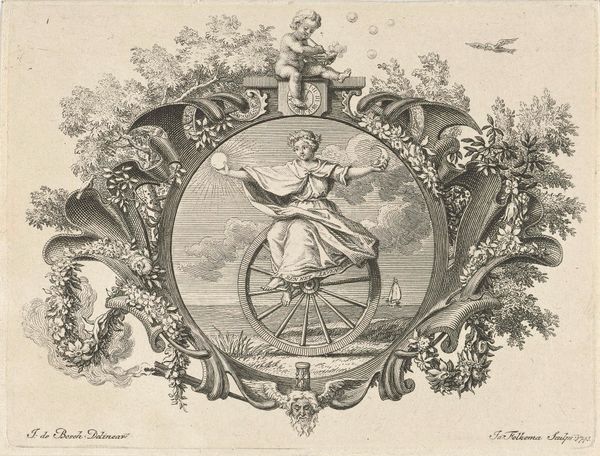
Epithalamium, at center a winged putto seated on a peacock standing on a barrel, at left a figure in fur-lined hat and outercoat holds a piece of wood over a brazier, at right a figure dressed in an ivy crown holds a goblet in one hand and a bottle in the other, surrounded by scrollwork and grapevines 1726
0:00
0:00
drawing, print, engraving
#
drawing
#
allegory
#
baroque
# print
#
line
#
history-painting
#
engraving
Dimensions: sheet: 9 x 12 in. (22.8 x 30.5 cm) plate: 4 7/8 x 6 1/4 in. (12.4 x 15.9 cm)
Copyright: Public Domain
This engraving, "Epithalamium," was created by Bernard Picart around 1700. At its heart, we see a winged putto perched upon a peacock, itself standing on a barrel, evoking themes of love, abundance, and perhaps a touch of earthly indulgence. Consider the peacock, a symbol laden with meaning since antiquity. In Greco-Roman times, it was associated with Juno, the queen of the gods, embodying beauty and pride, yet also vanity. Notice how Picart positions it atop a barrel, a symbol of Bacchus, god of wine and ecstasy, juxtaposing celestial beauty with earthly pleasures. This echoes in the figure crowned with ivy holding a goblet, a clear nod to Dionysian revelry. The image teems with symbolic tension. Even the act of heating wood over a brazier speaks to transformation and purification. The putto, a motif inherited from classical art, here rides the peacock—a powerful, perhaps even unsettling, combination of innocence and worldly display. It's a dance of opposites, a visual encoding of the complex interplay between virtue and vice that has haunted the human psyche across centuries. These are not merely decorative elements; they are potent symbols drawn from our collective memory, reconfigured and re-presented for a new age.
Comments
No comments
Be the first to comment and join the conversation on the ultimate creative platform.
